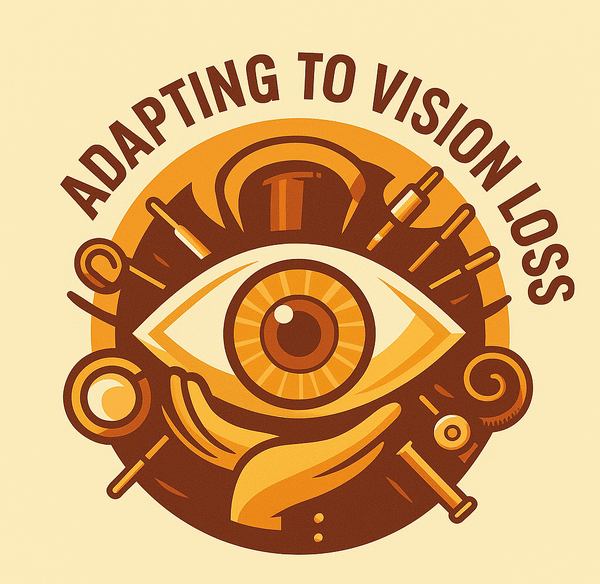Facing a new diagnosis of vision loss can be overwhelming and isolating. The sudden realization of the challenges ahead can bring on a range of emotions, from sadness to frustration to anxiety. It’s important to remember that you’re not alone, and there are many resources and strategies that can make the transition easier. Here are some helpful strategies that others have found effective in adjusting to life with vision impairment.
1. Allow Yourself to Feel
Receiving a diagnosis of vision loss often leads to a period of grieving, which is a natural part of accepting any major life change. Give yourself permission to feel sadness, frustration, or even anger, and understand that these emotions are a normal response. Talking to family, friends, or a therapist can help you process these feelings and move towards acceptance.
2. Build a Support Network
Support can come from many sources: family, friends, support groups, or professional counseling. Many people find strength in connecting with others who are experiencing similar challenges. Organizations such as the American Foundation for the Blind (AFB) or the National Federation of the Blind (NFB) offer local and online support groups where you can share your experiences, hear stories from others, and learn about helpful resources.
3. Embrace Technology and Adaptive Tools
Technology can be a game-changer for those with vision loss. Adaptive tools such as screen readers, magnifiers, and text-to-speech software can enable independence in daily tasks. Many smartphones and computers also have built-in accessibility features designed to assist visually impaired users. Learning to use these tools can take time, but it’s worth the investment in your independence. Our site, adaptingtovisionloss.com, provides recommendations for tools and devices that make a difference.
4. Develop New Skills for Daily Living
Adapting your daily routines can make life easier and help you feel more confident. Simple techniques, like organizing items consistently, using tactile labels, or implementing safety practices in the kitchen, can empower you to manage your home and personal care with less stress. Occupational therapists or rehabilitation specialists trained in low vision can provide tailored strategies to help you stay independent.
5. Explore Mobility Training
If your vision loss impacts your ability to move around safely, consider learning orientation and mobility (O&M) techniques. O&M training provides skills to navigate familiar and unfamiliar environments using a cane, guide dog, or other tools. Working with a certified O&M instructor can build confidence and help you reclaim your freedom to travel independently.
6. Set Small, Achievable Goals
Setting small, realistic goals is essential in regaining a sense of accomplishment and purpose. Focus on achievable steps, such as learning one new assistive tool, organizing a specific area in your home, or exploring a new form of public transportation. Each small success builds momentum and helps create a positive mindset for tackling larger challenges.
7. Educate Yourself
Learning about your specific condition and understanding what resources are available can be empowering. Knowledge is one of the best tools for navigating life with vision loss. Websites like adaptingtovisionloss.com and other online resources offer educational materials, tips for daily living, and links to support services. The more you know, the more prepared you’ll be to make informed decisions.
8. Practice Patience and Self-Compassion
Adjusting to vision loss is a journey that doesn’t happen overnight. Give yourself grace, recognizing that setbacks are part of the learning process. Celebrate your progress, no matter how small it may seem, and be gentle with yourself on the challenging days. Remember that adapting is a process, and each step forward counts.
Final Thoughts
While adjusting to a diagnosis of vision loss can be daunting, with the right mindset, support system, and tools, it’s possible to live a fulfilling, independent life. There’s no “right” way to cope, and each person’s journey is unique. Find what works best for you, keep an open mind, and don’t hesitate to reach out for help when you need it.
If you have more questions or need specific product recommendations, browse through Adapting to Vision Loss for insights and resources designed to help you on this journey. Remember, you are not alone, and there’s a community ready to support you.
